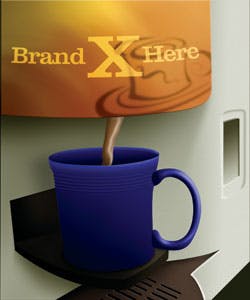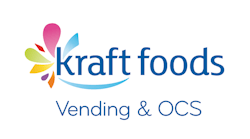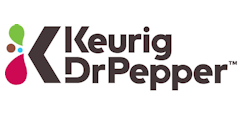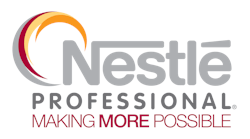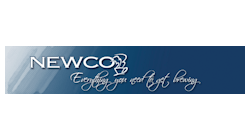Branded Machine Fronts, Long Underutilized, Can Help Win More Coffee Sales
With better quality products and equipment available, vending and OCS operators have more opportunities than ever to win their fair share of the growing coffee market. But based on recent industry data, vending and OCS operators have a long way to go to catch up with their retail competitors.
The National Coffee Association Winter Coffee Drinking Trends Report found an 11 percent jump in out----of----home coffee consumption from 2003 to 2004, back to peak 2000 levels. However, while more consumers are drinking coffee in the workplace, NCA reported they are increasingly getting their coffee from outside the workplace. That means the percentage of at----work coffee being sourced from within the workplace has, in fact, declined dramatically, NCA noted.
OCS and vending both challenged
The Automatic Merchandiser State of The Coffee Service Industry Report noted that the OCS industry has begun recapturing some of these sales, thanks in large measure to single--cup brewers. The vending industry, for its part, has been hamstrung by a long--term decline in industrial populations, which makes it hard for vending operators to invest in better quality product and equipment.
Some product and equipment suppliers have begun to offer point--of--sale materials to allow both vending and OCS operators to brand their machines with retail coffee logos. The goal here, as in other product categories, is to enable vending and OCS to capitalize on brand equity.
Brands long underutilized
While branding is only one of several factors contributing to successful merchandising, it has long been underutilized in vending and OCS.
This article will examine the potential benefits of branding coffee machines, both in vending and OCS. Readers are urged to keep in mind that it is difficult to isolate one factor contributing to success in coffee when several come into play. Other critical factors include product variety, consistency, price, quality, customer preference, alternative choices, and the quality of the service provider.
Competitors are more brand focused
Branding deserves attention given the fact that other retail competitors, such as c--stores, supermarkets and specialty stores, are aggressively marketing branded coffee.
Wyoming Research, in its 2005 “Foodservice Intelligence Tracking Study of Specialty Coffees” survey, revealed that c--stores accounted for nearly 70 percent of all foodservice specialty coffee consumed in 2004. C--stores’ share of specialty coffee has increased steadily for the past three years, the study found.
The challenge is particularly hard on the vending front, which is more capital intensive than OCS. In February of 2001, Automatic Merchandiser noted in its cover story that vending operators are largely hamstrung by the cost--based approach they use in the hot beverage segment. Advertising the brand of the coffee being sold was cited as one of several corrective actions needed.
Vendors question coffee branding
In March of 1996, Automatic Merchandiser surveyed 170 operators and found that 70 percent did not believe that branding is as important for hot beverage vending as cold beverage sales. Eighty--three percent said they did not believe customers would pay more for a national name brand coffee.
Recent operator interviews indicated sentiments have not changed. In addition, few branded vending presentations are to be noticed in the field, even though branded point--of--sale materials are available.
One reason is the simplicity of using generic equipment, in addition to lower cost. Generic fronts allow the operator to change selections and suppliers quickly and easily. A branded front ties the machine to a specific brand if not also a specific product.
Costs versus benefits
“I want to be able to change roasters, to change coffee programs,” noted Scott Guardino, director of sales at Paramount Automated Food Service Inc., based in Pompano Beach, Fla. This from an operator who has done more to promote branding than most, both private label and national brands.
Guardino noticed a 28 percent jump in sales when he branded his hot beverage machines. While he also raised prices and improved the quality of the coffee, he insisted that 75 percent of the gain was due to the branding.
The branding brought another benefit: It helped sell the program to decision makers. Many decision makers like seeing recognizable brands, he noted, and in some cases, the branding convinced the customer to have a hot drink machine. “The accounts identified with it,” Guardino said.
But these benefits weren’t enough in the long--term. Guardino felt he needed to keep shopping for better deals, in addition to providing the extra maintenance that was needed for the branded machine fronts.
More than a selling tool?
Dave Mandella, vice president at Full Service Vending Inc., Rockaway, N.J., believes based on several years of experience that branded fronts are more useful as selling tools than in driving consumption. “The performance with the branded front didn’t make a difference,” he said. “As long as it gives a good cup of coffee, they (customers) don’t care.”
Mandella acknowledged, however, that all of the national players— Aramark, Canteen and Sodexho—use branded fronts on virtually all of their coffee machines.
“Those brands present a great value to the clients and the employees,” argued Brian Zaslow, vice president of marketing at Aramark Refreshment Services Inc., which has been using Folgers branded machines for years.
Nestlé test proves benefits
In 2000, Nestle Beverages Inc. tested Nescafe branded machines in three markets and found the branded machines did make a difference. Vending industry consultant Brad Bachtelle, who conducted the tests, said the Nescafe machines, using water soluble coffee, were better able to maintain a consistent taste than machines using whole beans or preground coffee.
The success of the test was due to higher quality and the brand, Bachtelle said. “It’s the brand that draws the people to the machine,” he said. “The operators have to be willing to pay more.”
Are vendors meeting needs?
Bachtelle said it is noteworthy that coffee is the single most frequently purchased vend product bought at an alternative source. Hence, vendors are missing out on what consumers want. “The question is not are they (consumers) buying it cheaper some place else; they’re buying it better some place else,” he said.
The success of the Nescafe program convinced Devin Zelman, president of Proformance Vend USA, Phoenix, Ariz., to switch all of his machines to Nescafe. “All of our machines did better,” he said.
Stan Ledbetter, president of RE Services Inc., Lafayette, Ga., said branding did improve his coffee sales, but not enough to reverse the long--term decline in hot beverage sales. His company serves an industrial customer base. As a Canteen franchise, he has switched to Maxwell House branded machines and Ritazza branded machines. Ritazza is Canteen’s signature coffee brand.
“It was received very positively,” Ledbetter said of the Maxwell House machines. “People really believed we were giving them what they were getting in the supermarket.”
Are the right brands available?
Given the fact that specialty coffee is what has been driving most of the growth at retail, one might argue that most of the brands that have been available to vending operators will not deliver the right message to today’s quality conscious consumer.
Specialty coffee brands have not been readily available to vending since vending is such a small part of the total coffee market and specialty roasters are not confident in their ability to control product quality.
In one case where a specialty roaster did sanction a vending program, the cost proved prohibitive for most operators. Dietrich Coffee Inc. launched a vending program for its Gloria Jeans brand, complete with machine graphics, two years ago.
Steven Heyman, vice president of sales at Dietrich Coffee, said very few operators were interested in paying extra for the graphics and being tied to one brand. “It takes the right operator to take a bit of a risk,” he said. “There is an opportunity. It’s going to cost more.”
OCS: single--cup brings opportunities
Branding could offer more opportunities in the OCS industry with the rise in single--cup systems. Nor is account downsizing undermining OCS as much as vending.
Most OCS operators interviewed, however, were not any more enthusiastic than vending operators about advertising a particular coffee brand on their machines.
Some OCS operators were quick to point out the concepts that have created the most growth in recent years—single--cup machines and airpot brewers— carry little branding that is known to the consumer. The visual presentation of these systems emphasize the production and quality control processes.
“I think it’s the concept,” said Ron Weber, president of Master Brew Beverages Inc. in Northbrook, Ill. “I don’t think the advertising on a single--cup system makes a huge difference.” Even OCS operators who believe in advertising the product are more likely to emphasize their private label brand. OCS operators have traditionally used branded coffee to win the account, then woo the customer to private label, which is more profitable.
Given the control they have over product quality when using private label, operators have long argued they can provide a better product at lower cost. Which isn’t to say that OCS operators have ignored the concept of brand marketing; rather, the brands they have marketed have been mostly private label.
Private label versus national brand
Ken Shea, the St. Charles, Mo.--based consultant and former OCS operator, said public perception of national coffee brands is one factor contributing to the OCS operators’ unwillingness to brand their machines. Operators know that better quality coffee is what consumers want today, and most of them believe their private label can out--perform the national brands. “You can produce a great cup of coffee at a greatly reduced price,” he said.
Operators need to realize, however, that not all brands carry the same equity with the consumer.
National versus signature brands
Paul Quintavalla, who operates the Broomhall, Pa.--based consultancy Icon Marketing and is a former Service America Corp. executive, pointed out in an Automatic Merchandiser article on branding in April 2004 the pros and cons of national versus signature (private label) brands.
Signature brands are more economical, more flexible, and allow the operator to showcase a point of difference. However, establishing them takes time and can be very difficult for someone not experienced in brand building. National retail brands, on the other hand, have the largest audiences and have proven themselves over time.
Adventures in branding single--cup
M&D Gourmet Coffee, based in Miami, Fla., recently set up 200 distributors of Folgers branded single--cup machines nationwide. The company sells Folgers branded Venus Progema water soluble machines supplied by VE South LLC. “The American consumer is still driven by name brand,” said Manny Rodriguez, owner of M&D Gourmet Coffee.
“People like the product,” confirmed Rodriguez’s customer Tico Moreno, who operates The Java Butler in Naples, Fla. Moreno placed all 10 of his machines in locations that already had OCS. “It’s the brand that sells the most in the U.S,” he said.
Ljiljana Novkovic was a vending novice who came across M&D Gourrmet Coffee on the Internet and has placed eight Folgers machines in restaurants and c--stores in Albany, N.Y. She said the coffee has been well received by customers.
Coffee Solutions Inc., based in Miami, Fla., has placed 120 Lioness, single--cup Nescafe machines in less than a year, noted Patrick Johnson, general manager. The high concentration of Hispanics makes Miami a good market for this product since Nescafe is well established in much of Latin America.
Goldenwhipp Coffee Services LLC, a Puerto Rico--based company that recently expanded into Miami, Fla., markets a Maxwell House branded Venus Progema machine to offices.“It (the branded graphics) gives you that extra push,” noted Julio Aranguren, general manager of the company’s Miami operation. He thinks Maxwell House has a good reputation among customers.
Branding opportunities for OCS aren’t restricted to the traditional national brands, however. Some of the newer brands that can be advertised on OCS brewers are more closely associated with specialty coffee.
Cafection Enterprises Inc. recently introduced an Avalon Quad brewer with Green Mountain Coffee graphics. Green Mountain Coffee is fairly well established in the Northeast and is the original K--Cup brand used by Keurig.
More branded concepts emerge
Chris Coffee Service in Albany, N.Y. tested the branded Avalon unit and found that the Green Mountain brand boosted sales. Chris Nachtrieb, president of the Chris Coffee Service, admitted he was surprised; he always believed in the marketing power of his private label coffee, even though he knew Green Mountain has a good name.
Nachtrieb tested Green Mountain branded machines in four locations that offered a dark roast, a regular roast and a decaf. The machines on average returned 35 percent higher sales than the generic machines, which only offered regular and decaf.
Classic Coffee Systems, Ltd. in Valley Stream, N.Y. also found the Green Mountain Coffee branded Avalon brewer improved sales over the generic Avalon machine. “We are pushing gourmet products at gourmet prices,” said Charles Chiarello, company president. “They want to know they are drinking a gourmet brand.”Aramark Refreshment Services has recently added the Green Mountain branded Avalon machine to its arsenal of branded coffee offerings, noted Brian Zaslow, vice president of marketing at Aramark.
W.P. Coffee Co. will be launching a branded pod brewer this year. Don Stoulil, co--owner, noted that the purpose is two--fold: to capitalize on the Wolfgang Puck brand, and to assure the customer that the coffee is being prepared according to W.P. Coffee specifications. “We want to marry the machine with what we think is the best tasting pod coffee out there,” Stoulil said. “It makes sense to brand it and identify the difference and the unique value to the customer.”
Brands as quality assurance
W.P. Coffee isn’t the only roaster that is marketing a proprietary machine to serve its coffee; the same is true for the Gevalia cartridge brewer and the Starbucks single--cup brewer. In all three cases, the companies are using a retail consumer brand to signify a certain quality level.
Mike Tomkins, regional sales manager at Newco Enteprises Inc., which makes the Gevalia cartridge machine and a variety of other brewers, observed that these three programs are using a formula that has already proven itself in OCS—a machine that requires a specific product—and taken it a step further using retail branding.
The formula has already been proven by machines requiring proprietary product. But where Keurig and Flavia are commercial brands—known mainly to the trade— Wolfgang Puck, Gevalia and Starbucks are consumer brands. In time, the distinction between commercial and consumer brands could blur. Keurig, for instance, has been selling a homeowner model to consumers.
Dave Mandella, vice president at Full Service Vending Inc., Rockaway, N.J., said the fact that there is a homeowner Gevalia brewer makes him more confident about placing Gevalia cartridge machines. He said half of the consumers, in response to one promotion, indicated having a Gevalia homeowner unit.
Situations call for different strategies
Tomkins of Newco Enterprises said different strategies will make sense depending on the situation. “I think there are times when using the least expensive is a good strategy, and then there are times when the manufacturer supports a brand and supports a program.” Vending and OCS operators alike need to upgrade their coffee programs to compete with other retailers in winning over today’s coffee consumer. Operators cannot afford to discount the importance of branding in developing better coffee programs.
While branding is one of several factors that come into play, vending and OCS operators need to accept the fact that the coffee business nowadays requires a bigger investment for any operator serious about success.
-------------------------------------
Printed overlays bring branding to brewers
Branded coffee brewers and dispensers are nothing new. Cole Screenprint Inc., based in Tacoma,Wash., has offered permanent branded overlays for brewers and dispensers for years with its Pumpskins resurfacing systems. The company also prints branded labels, decals, signs, racks and coffee bibs for glass pots.
Operators can order the overlays for a variety of equipment. The overlays adhere to the surface with an adhesive. There are both permanent and removable overlays available.
Brian Redpath, national sales director, said the orders are about evenly split between private label and national brands. He noted that most of the orders come from coffee roasters that provide serving equipment.
The cost for the overlays depends on volume. The company uses both digital and screen printing.
Redpath said operators should realize that branding equipment is a one-time cost that pays off over the life of the equipment. “Once they’ve made that expenditure in the brand, it’s out there advertising 24 hours a day,” he said.
----------------------------------
Kraft Vending & OCS offers operators a wide variety of branded single-cup fronts
With more single-cup equipment being introduced, Kraft Vending & OCS is making sure that operators have the option of branding the equipment with its Maxwell House and Gevalia brands. The company has developed face plates for most hot drink vending machines and single-cup brewers, including the new manual pod brewers.
Operators can order branded face plates and channel markers for vending machines and single-cup brewers from Kraft directly, from Vendors Exchange International Inc., or their authorized equipment distributor. Operators can contact their Kraft sales person for information.
